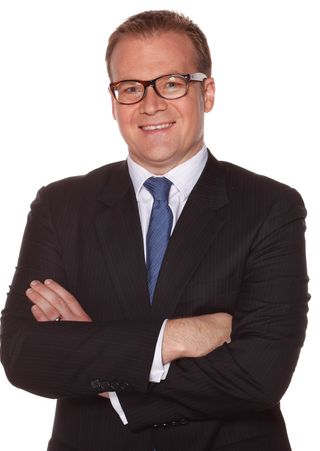ABC The Drum
Dr Ben Carson announced he would run for president just days after the town he made his name in, Baltimore, was rocked by riots over the death of a black man in custody. The connection could prove powerful, writes
Dr Ben Carson has become the latest candidate to throw his hat into the ring, seeking the Republican Party's nomination for the US presidency in 2016.
A former paediatric neurosurgeon at the prestigious Johns Hopkins Hospital in Baltimore, Carson has never held elected office and recently declared "even if I'm elected to office I'm not going to be a politician".
And the 63-year-old African-American has already made it clear he is not going to be politically correct. That was a major theme of a 2013 speech he made at the National Prayer Breakfast, when he railed against the so-called Obamacare health care reforms just metres from where Obama himself sat with an increasingly displeased expression.
Republicans and Tea Partiers loved it — here was the perfect anti-Obama: a doctor who didn't like his health care reforms, and a black one at that. At last a critic who could not be called a racist. The clip of that speech was played on high rotation on Fox News and he's been a fixture on conservative media ever since.
Carson's story is very much a conservative take on the American dream — take responsibility for yourself, don't look to others including the government — it's your life, pull yourself up, don't ask for a hand-out, make something of yourself.
Carson describes himself as having been an angry young kid growing up in 1950s Detroit. He wrote in his less than modestly-titled autobiography, Gifted Hands, how his violent temper almost lead him to stab a friend in the abdomen, and how he turned to the bible and never had an anger problem again. Former Democratic presidential candidate, Rev. Jesse Jackson described Carson on the dust jacket of that 1990 tome as "a model to all the youth of today".
Carson's declaration for the presidency comes at an interesting time, just days after the town he made his name in, Baltimore, was rocked by rioting after the funeral of Freddie Gray — a black man who was arrested for carrying a knife but died in police custody after suffering massive spinal cord injuries. Coincidentally, Carson's medical specialty extends to spinal cord injuries and brain trauma.
Last Friday, six police officers were charged as prosecutors announced Gray's death was ruled a homicide. Soon after, Carson took to Facebook to raise doubts about the police version of events that Gray died accidentally after a "rough ride" in the back of a police van. The type of injury suffered by Gray, Carson wrote, "requires a great deal of direct pressure to that area ... there is a high likelihood that direct trauma occurred".
The connection could prove to be very powerful. The fact remains that about one third of black men in America will be sent to prison during their lifetime. Carson challenges older white Americans in particular to see "angry" young black men differently — not as a potential threat that needs locking up, but as someone who could someday be a great surgeon.
Carson also poses a challenge to Democrats, who have forged a coalition of minority voters in recent elections built on a massive 90+ per cent of the African American vote. Carson's faith and personal story has already started to resonate with potential voters, who, according to a Fox News poll, put him in about the middle of the pack among declared and likely Republican candidates and just 7 per cent behind frontrunner Marco Rubio.
His candidacy could make the Republican Party seem more attuned and accessible for black Americans. He will immediately add a look of diversity to the group photos and debate line-ups. There is a danger, however, that like another conservative African-American candidate Herman Cain in 2012, Republicans will like the idea of Carson more than they like Carson himself. But whereas Cain was a fast-talking salesman with a closet full of indiscretions, Carson is a role model who will demand to be heard.
This article was originally published at ABC The Drum





